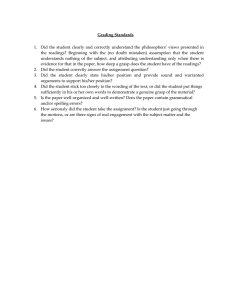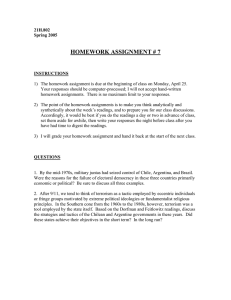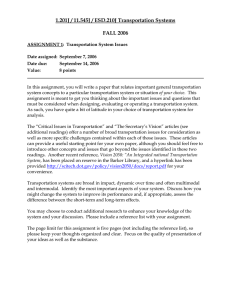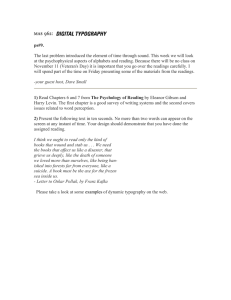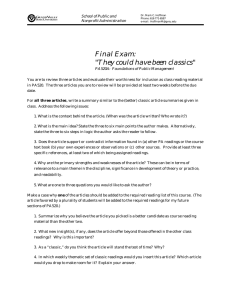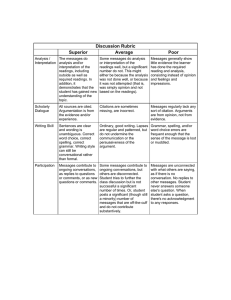Education 548: Effective College Teaching
advertisement
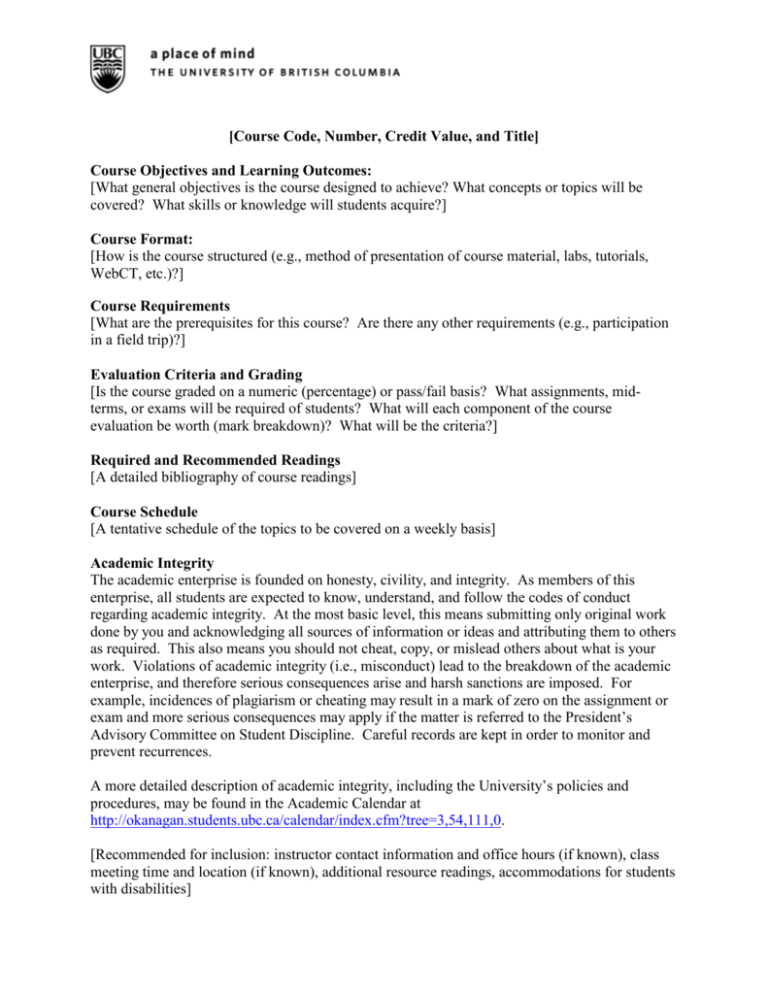
[Course Code, Number, Credit Value, and Title] Course Objectives and Learning Outcomes: [What general objectives is the course designed to achieve? What concepts or topics will be covered? What skills or knowledge will students acquire?] Course Format: [How is the course structured (e.g., method of presentation of course material, labs, tutorials, WebCT, etc.)?] Course Requirements [What are the prerequisites for this course? Are there any other requirements (e.g., participation in a field trip)?] Evaluation Criteria and Grading [Is the course graded on a numeric (percentage) or pass/fail basis? What assignments, midterms, or exams will be required of students? What will each component of the course evaluation be worth (mark breakdown)? What will be the criteria?] Required and Recommended Readings [A detailed bibliography of course readings] Course Schedule [A tentative schedule of the topics to be covered on a weekly basis] Academic Integrity The academic enterprise is founded on honesty, civility, and integrity. As members of this enterprise, all students are expected to know, understand, and follow the codes of conduct regarding academic integrity. At the most basic level, this means submitting only original work done by you and acknowledging all sources of information or ideas and attributing them to others as required. This also means you should not cheat, copy, or mislead others about what is your work. Violations of academic integrity (i.e., misconduct) lead to the breakdown of the academic enterprise, and therefore serious consequences arise and harsh sanctions are imposed. For example, incidences of plagiarism or cheating may result in a mark of zero on the assignment or exam and more serious consequences may apply if the matter is referred to the President’s Advisory Committee on Student Discipline. Careful records are kept in order to monitor and prevent recurrences. A more detailed description of academic integrity, including the University’s policies and procedures, may be found in the Academic Calendar at http://okanagan.students.ubc.ca/calendar/index.cfm?tree=3,54,111,0. [Recommended for inclusion: instructor contact information and office hours (if known), class meeting time and location (if known), additional resource readings, accommodations for students with disabilities]
